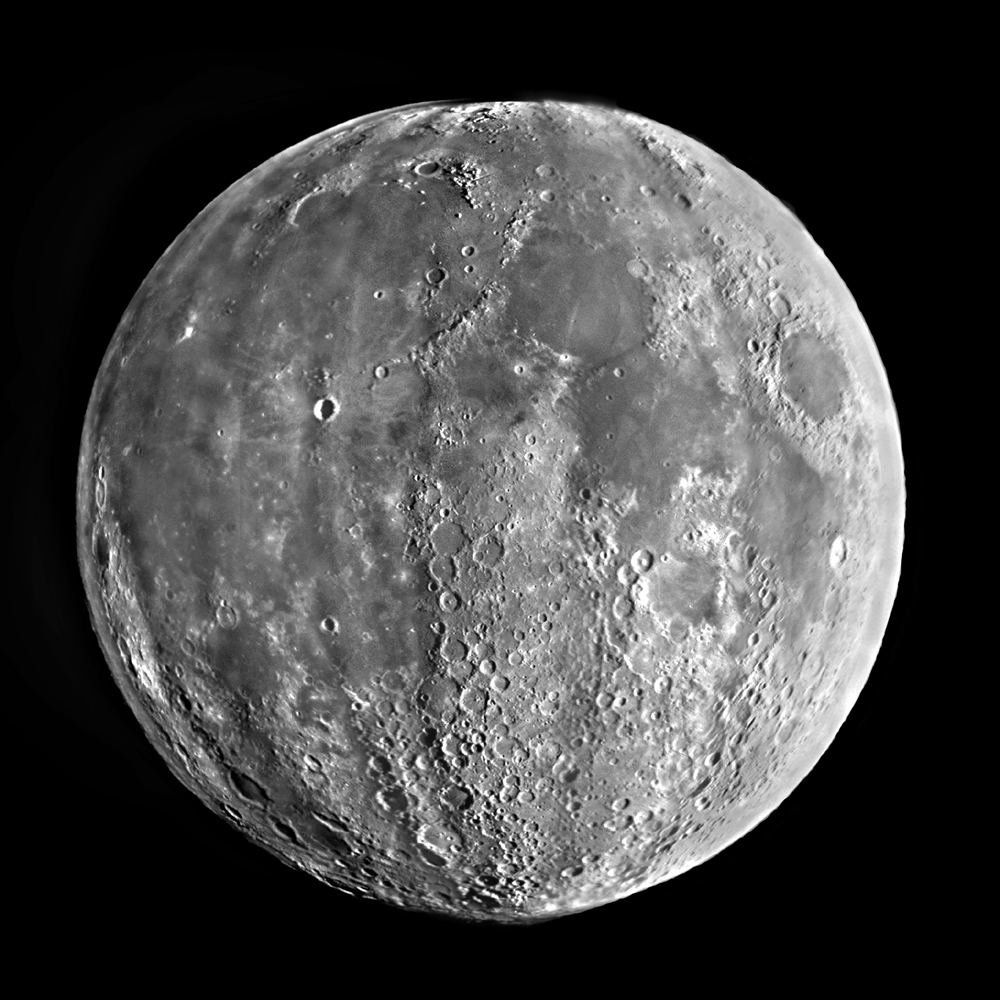
image by Ivan Gonçalves, Nîmes, France
The Moon is the most difficult object in the universe to image. How is that for a catagorical statement? Its even true, in some ways. Distant galaxies are hard to image, and dark energy is impossible to see, so what’s so hard about taking a picture of the Moon? Unlike all the other planets, the Sun and everything else in the universe, the Moon is so close to us that to take a picture that shows everything equally well is impossible. During full Moon you can’t image its topography, and during every night for the rest of the month only part of the surface is visible. The Moon is a topographically exuberant place, with highs and lows everywhere, and a perfect picture would capture it all. Since that is physically impossible, Ivan has created his own image of lunar topography by stitiching together ten of his own phase images. Although Pablo Lonnie Pacheco Railey has made a similar mosaic using Consolidated Lunar Atlas images, this is the first time I have seen a composite topographic image made using a person’s own images. I am impressed! I hope Ivan’s example engenders a string of imitators, each better than the last. And as Ivan said about his composite: it is not perfect, but it can inspire the perfectionists…
Technical Details:
Celestron 8 + Nikon D70 digital camera; composite created in photoshop.
Related Links:
Rükl plates: all
Yesterday's LPOD: Irish Moon & LPOD
Tomorrow's LPOD: Lava or Ejecta? An Answer at Last!
COMMENTS?
Register, Log in, and join in the comments.



